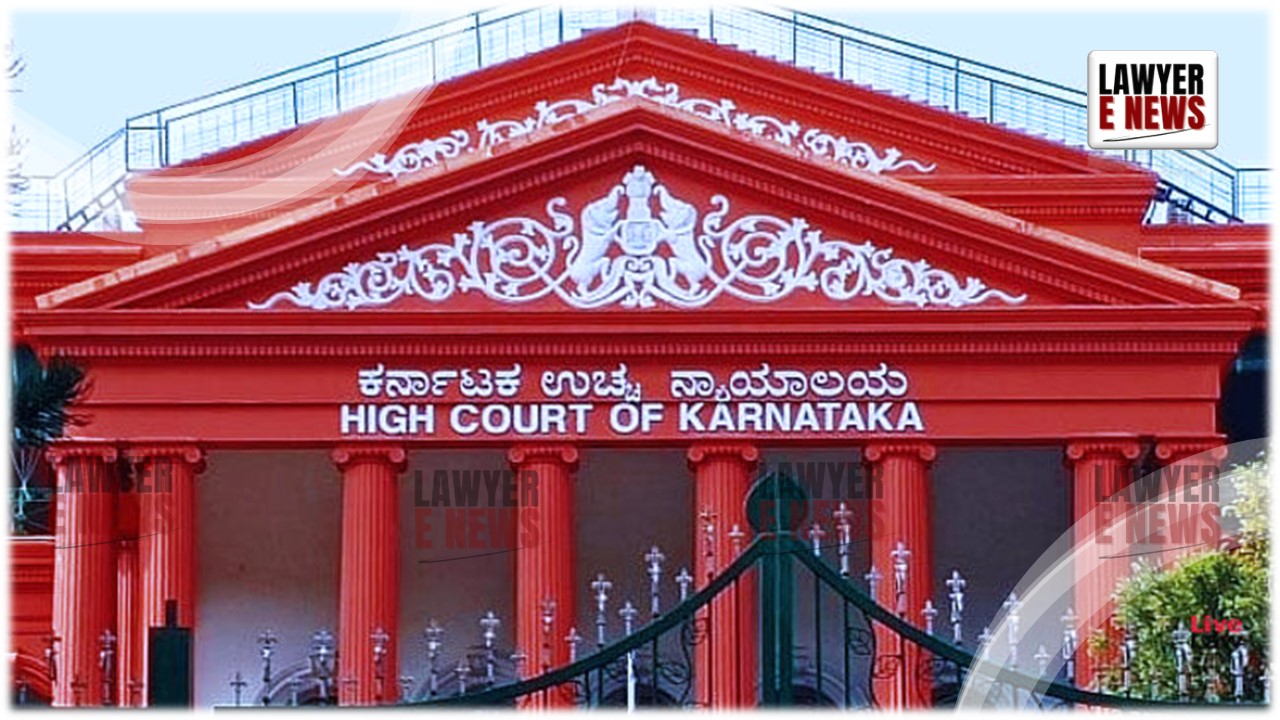-
by Admin
15 February 2026 5:01 PM



Karnataka High Court acquitted Manjunath and three other appellants who had been convicted by the trial court for offenses under Sections 498-A (dowry harassment), 323 (causing hurt), and 307 (attempt to murder) read with Section 34 of the Indian Penal Code (IPC). Justice Shivashankar Amarannavar overturned the Fast Track Court’s 2011 judgment, citing lack of sufficient evidence, inconsistent testimony, and absence of medical corroboration.
The case originated from a complaint filed by the victim (P.W.1), who alleged that her husband (accused No. 1) and in-laws (accused Nos. 2 to 4) harassed her for dowry, assaulted her, and attempted to murder her by pouring kerosene and setting her on fire on the night of July 13, 2009. She claimed that her neighbors broke open the door to rescue her and her children and that she was later taken to the hospital by one of the accused, who allegedly fabricated the incident as an accident involving a kerosene lamp.
The Vijayapura Police registered the case under Sections 498-A, 323, and 307 IPC and filed a charge sheet after investigation. The Fast Track Court, Devanahalli, convicted all four accused and sentenced them to imprisonment, prompting the appeal.
Whether the trial court erred in convicting the accused under Sections 498-A, 323, and 307 IPC.
Whether the prosecution presented sufficient evidence to prove harassment, assault, and attempt to murder.
The complainant (P.W.1) alleged that the accused harassed her for ₹1,500 she had withdrawn from her post office account. However, her testimony was inconsistent. While she stated in her complaint (Ex.P.1) that accused No. 1 snatched the money, she only mentioned in her deposition that he demanded the amount and assaulted her. The wound certificate (Ex.P.7) showed no injuries, contradicting her claims of physical assault.
The High Court noted that P.W.1 did not see who poured kerosene and set the fire. She only stated that she heard the voices of accused Nos. 2 and 3 outside her house. The neighbors (P.Ws.2-4), who allegedly rescued her, did not corroborate her allegations and failed to support the prosecution’s case during cross-examination. The medical report (Ex.P.7) indicated no external or burn injuries, further undermining the claim of an attempt to murder.
The evidence of P.Ws.2-4 was crucial as they were present at the scene. However, their testimonies did not substantiate the complainant’s allegations. The court held that the sole testimony of P.W.1, without independent corroboration, was insufficient to convict the accused.
Evidence from P.W.6 and P.W.10 indicated that there were prior disputes between the complainant and her husband (accused No. 1). However, the High Court noted that the advice given by the panchayat to accused No. 1 to reconcile with his wife did not establish guilt for the specific incidents alleged in the case.
The wound certificate (Ex.P.7) stated that the complainant did not sustain any injuries or burns, despite her claims of being set on fire. The court observed that the absence of medical evidence contradicted the prosecution’s narrative and weakened the case against the accused.
After reviewing the evidence and arguments, the High Court ruled that the prosecution failed to prove its case beyond a reasonable doubt. The key findings were as follows:
The evidence of P.W.1 was inconsistent and uncorroborated by independent witnesses or medical reports.
The neighbors (P.Ws.2-4), who allegedly rescued the complainant, did not support the allegations.
The medical evidence (Ex.P.7) indicated no injuries or burns, contradicting the claim of an attempt to murder.
In light of these findings, the court extended the benefit of doubt to the accused and set aside their conviction.
Appeal Allowed: The High Court allowed the appeal filed by the accused.
Conviction Reversed: The judgment of conviction and sentence dated December 17, 2011, passed by the Fast Track Court, Devanahalli, was set aside.
Acquittal Ordered: The accused were acquitted of all charges under Sections 498-A, 323, and 307 IPC.
Refund of Fine: Any fine paid by the accused was ordered to be refunded.
Release of Accused: The court directed the release of accused No. 1 if not required in any other case.
This judgment underscores the importance of corroborative evidence and the standard of proof in criminal cases. The High Court’s decision to acquit the accused highlights the need for the prosecution to present consistent and credible evidence, particularly in cases involving serious allegations such as dowry harassment and attempt to murder.
Date of Judgment: December 10, 2024
